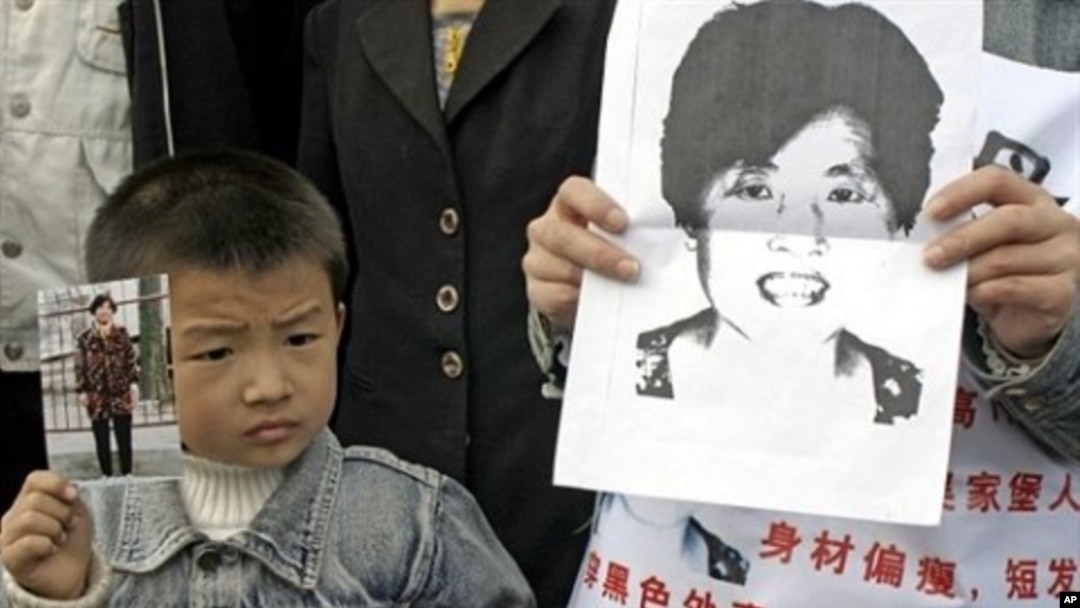Human rights activists say women and children in China and surrounding countries are bought and sold in China. They are victims of either forced labor or sexual exploitation. Some women and girls are also forced into marriages.
"These are the faces of the boys and girls who have disappeared in China without a trace," says Chai Ling, founder of the group All Girls Allowed, who has been working with
volunteer organizations to promote awareness and help families find their children. She says many of the missing are kidnapped and sold.
"The brothels, they buy the women and girls into sex slavery," said Chai Ling. "That's a huge market out there. There are then individual families who want to make sure they have wives for their own son."
Traditional Chinese culture places more value on a boy. When they grow up, the men are expected to live with and care for their parents, take a wife and continue the family name. "When a woman is pregnant with a girl, " Chai says, "Some families are taking this matter into their own hands by selectively aborting, abandoning and selling their baby girls. There are approaching 40 million young men inside China who will not find a bride. So as a result of that, sex trafficking against girls and women are becoming a huge problem inside China."
Human rights activists say China's one-child policy has contributed to the uneven gender ratio fueling the problem.
Chai says some missing girls may end up being sold to a family as a child bride. Boys can also be trafficked for families without male heirs.
But volunteers are slowly making progress.
All Girls Allowed says a three-year-old girl, named Little Bean, was kidnapped last June and sold. With the help of volunteers who put out flyers with her picture, she was found seven months later and reunited with her parents.
Andrea Bertone, the director of human trafficking.org, says the gender imbalance in China is affecting surrounding countries.
"There is a large number of women who are brought in from Vietnam, Laos and North Korea for forced marriage situations and they're mainly going into the rural areas,"said Bertone. "Women or children who are being brought from neighboring countries across the borders to either work or be in a marriage in the rural areas, we're talking about a smaller network of people who know how to navigate the borders and be able to pay off the border officials pretty easily."
Bertone says traffickers inside China could either belong to small networks or more organized crime syndicates.
While a few are caught, the demand for women and children continues and the problem of human trafficking is expected to grow in China and expand throughout the region.


